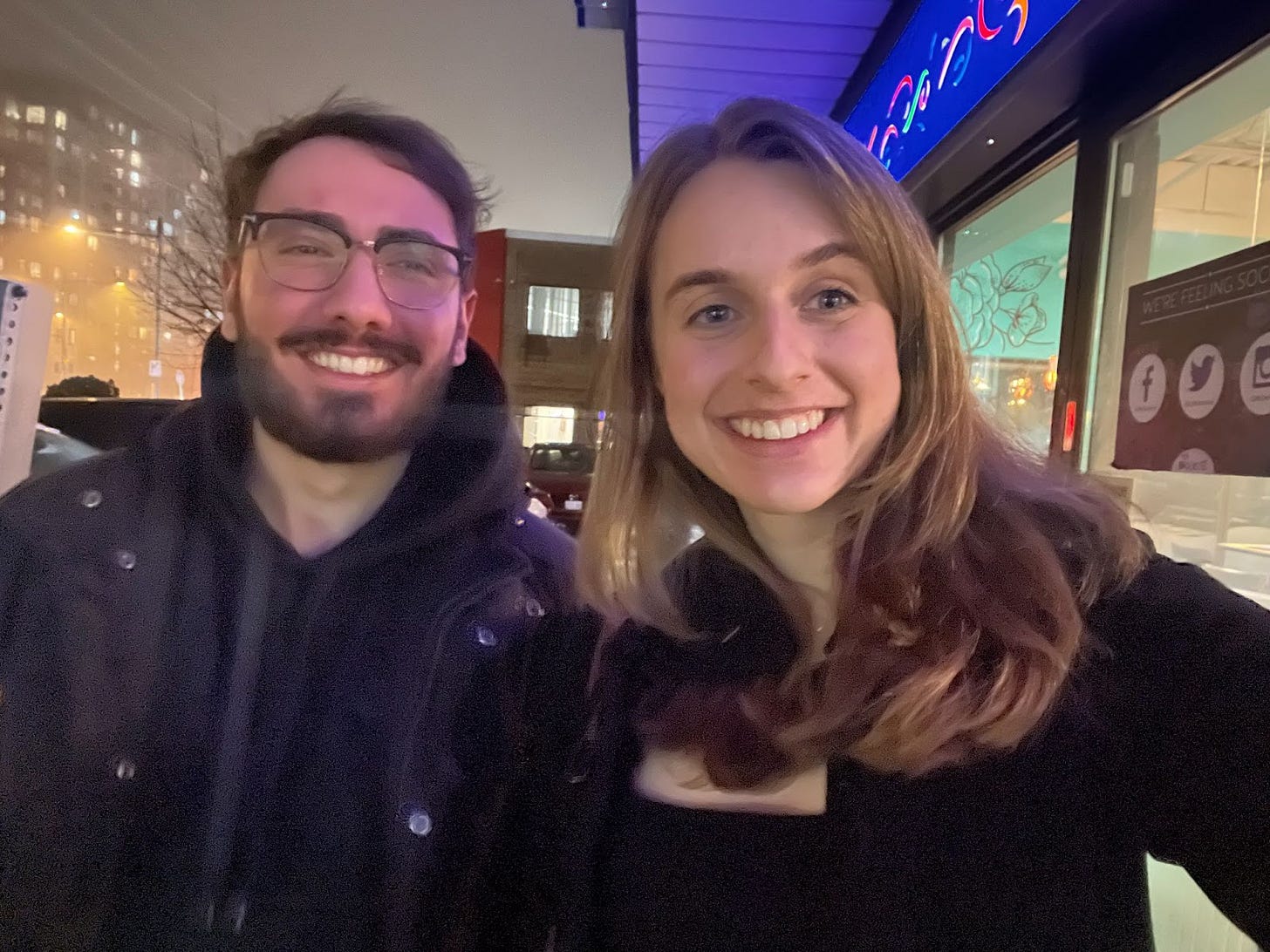Friend #44 - Sam
My brother's friend
Sam and I met in the winter but I was delayed in writing.
Sitting across from me at Demetres, Sam eats a piece of apple cheesecake. I slurp on a chocolate milkshake. Our conversation is in many ways too deep for the setting.
“I went to school the day after my mom died,” he tells me.
I’ve known Sam for as long as I can remember. He is a friend of my brother’s and his mom always warmly welcomed us into their home.
Sam was in the ninth grade when his mom passed away from leukemia. His brother, in the fifth.
He explains that to some degree he was grieving her as she was living. “I remember the last time I saw her. I was standing on the top of the stairs and she was leaving for the hospital because she had a lung infection. We thought she would be back in a few days but she stayed there for two weeks and my dad wouldn’t let us see her during that time,” he says.
“I carry a lot of regret over not standing up to my dad and that feeling follows me. Sometimes I think ‘Why didn’t I ask that prof for help’ or ‘Why didn’t I ask that girl out’,” he adds.
We then discuss the concept of self-pity. “Last year, I was so depressed and it became a cycle. I would feel bad for what happened and then feel sad and then feel sad for being sad,” I say.
“I know and then you give yourself reasons for why you can’t do things. Have you ever been so depressed that you couldn’t brush your teeth?” he asks.
“Yeah, last summer I was disgusting,” I reply. “In September when my appendix burst, after the surgery, a nurse at the hospital called me ‘sir’.”
“I realized my depression stemmed from loneliness, but it took me a long time to understand that,” I continue.
“I think that our lives have meaning when we have community so that we move through things together. It’s also important to keep every interaction positive,” Sam says.
When I lived in Miami, I talked to my doorman daily. I’d ask him about what he did when he wasn’t a doorman—one time I gave him half the loaf of bread that I had baked. I think that our interactions might have been menial for him, but for me, because I would spend a lot of time alone, it meant a lot.
“We don’t know how valuable conversations are to someone. In prison even, when they want to punish an inmate, they put them in solitary confinement. It’s how we lose our minds,” Sam tells me.
“Do you think you relate more to people who have been through difficult experiences like losing a parent?” I ask.
“Yeah. Sometimes I look at people and think that they don’t know real life,” he says. “Not that I only relate to people who have lost a parent but maybe we understand one another more.”
“Do you talk to your family in Iran?” I ask Sam.
“Yeah I’m trying to,” he says.
We end the conversation by sharing our celebrity crushes and career plans and how we feel about losing friends.
“If you ever need someone to hang out with let me know,” he tells me.
“I will,” I say as I drop him off at home.
“I wish I could show you when you are lonely or in darkness the astonishing light of your own being. Even after all this time the sun never says to the earth, "You owe me." Look what happens with a love like that, it lights the whole sky. Fear is the cheapest room in the house. I would like to see you living in better conditions.”
― Hafez
Internet Browsing


